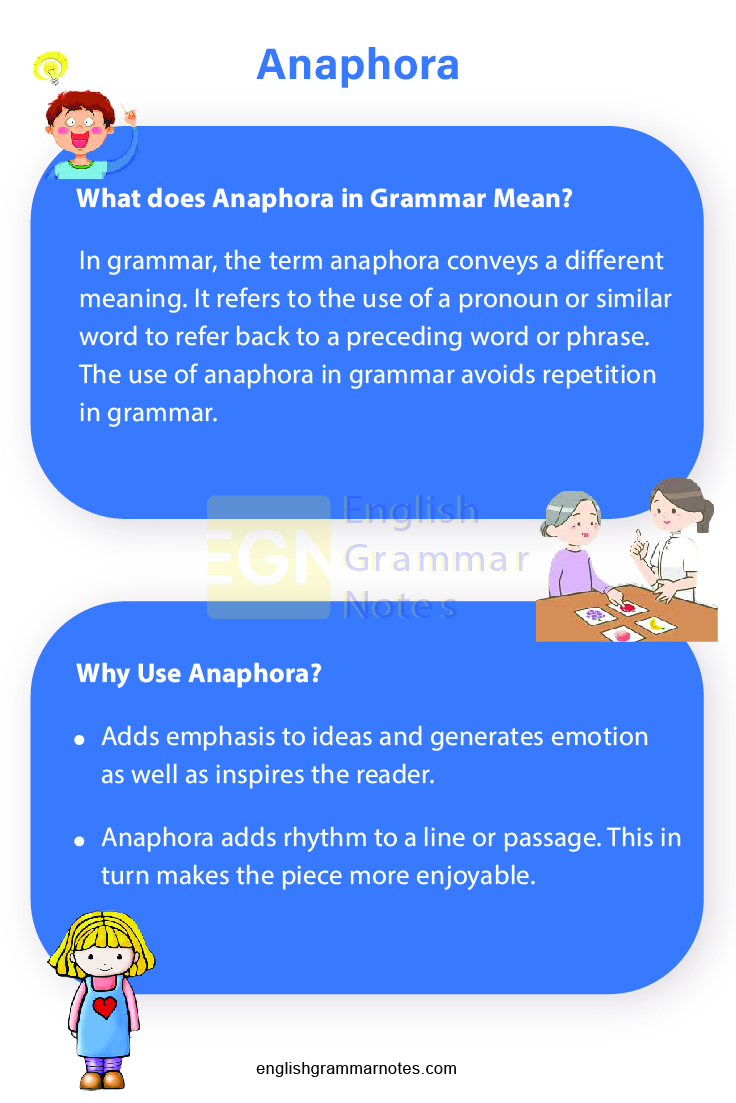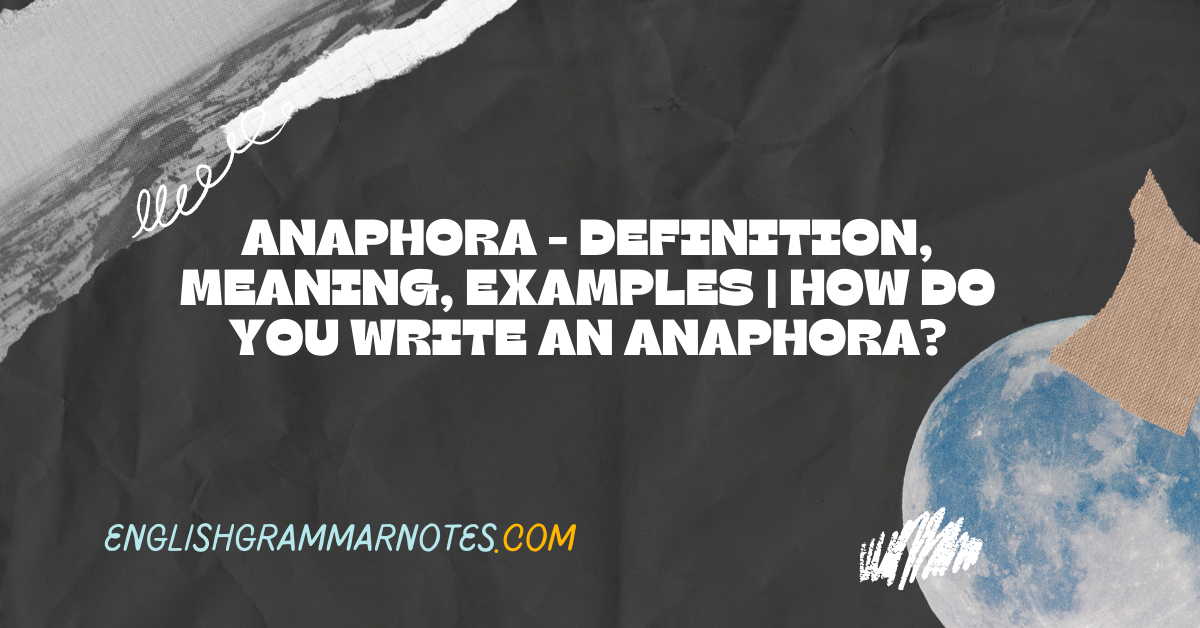Anaphora is a Rhetorical Device that engages in the repetition of a specific word or phrase at the beginning of subsequent lines or passages. The use of anaphora reinforces the meaning and adds rhythm to a passage or line. Writers often make use of this Rhetorical device as a means of pursuing the audience. Have a look at the use of anaphora in William Shakespeare’s Sonnet 66:
“Tired with all these, for restful death I cry,
As to behold desert a beggar born,
And needy nothing trimm’d in jollity,
And purest faith unhappily forsworn,
And gilded honour shamefully misplac’d,
And maiden virtue rudely strumpeted,
And right perfection wrongfully disgrac’d,
And strength by limping sway disabled
And art made tongue-tied by authority,
And folly – doctor-like – controlling skill,
And simple truth miscall’d simplicity,
And captive good attending captain ill”
In the above lines the word ‘and’ is repeatedly used in almost all the lines.
Origin of the word “Anaphora”
The word anaphora entered English Vocabulary through Greek, where it conveys the meaning of “reference” or “a carrying back.”
- What does Anaphora in Grammar Mean?
- Why Use Anaphora?
- How to Use Anaphora?
- What is Anaphora?
- Why is it important to use anaphora in a line or passage?
- What does Anaphora in Grammar signify?
What does Anaphora in Grammar Mean?
In grammar, the term anaphora conveys a different meaning. It refers to the use of a pronoun or similar word to refer back to a preceding word or phrase. The use of anaphora in grammar avoids repetition in grammar.
Example: Jack ran to his room.
his is the anaphora used in the above sentence.
Why Use Anaphora?
The benefits of using anaphora are many. These include:
- Adds emphasis to ideas and generates emotion as well as inspires the reader.
- Anaphora adds rhythm to a line or passage. This in turn makes the piece more enjoyable.
However, the overuse of anaphora can make a piece boring rather than enjoyable.

How to Use Anaphora?
The answer to the question How to use anaphora? is quite simple. Just follow the given steps:
- Decide on the word or phrase you intend to emphasize.
- Repeat the word or phrase at the beginning of each sentence or line.
FAQs on Anaphora
Anaphora is a Rhetorical device that engages in the repetition of a specific word or phrase at the beginning of subsequent lines or passages.
2. Why is it important to use anaphora in a line or passage?
The use of anaphora has several benefits. These include:
- Anaphora adds emphasis to ideas and generates emotion as well as inspires the reader.
- The Rhetorical device also rhythm to a line or passage thereby making it more enjoyable.
3. What does Anaphora in Grammar signify?
In grammar, the term anaphora has a different meaning. It refers to the use of a pronoun or similar word to refer back to a preceding word or phrase. The use of anaphora in grammar avoids repetition in grammar.
Conclusion
Anaphora is a Rhetorical device that serves to emphasize meaning and add rhythm to a text. The use of anaphora will intensify the impact of the words or phrases that you use. However, the overuse of this rhetorical device can make your writings boring. Hence be aware of the number of times that you repeat a phrase or word, to ensure that you get the most out of using anaphora.
